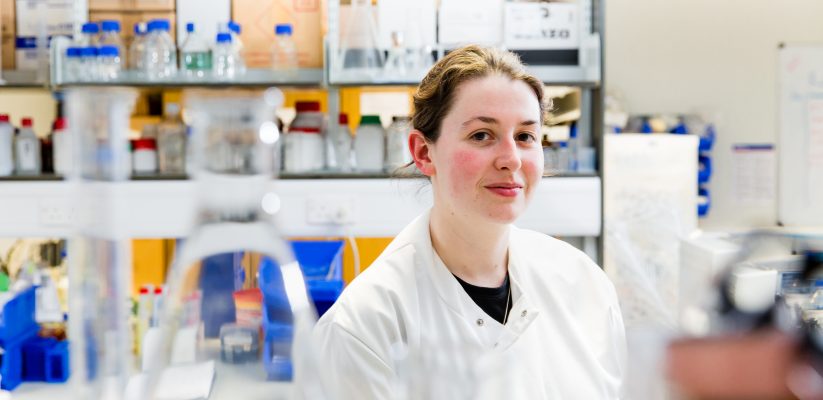In 2015, Victoria Heath travelled to Sierra Leone as part of the UK government’s response to the Ebola crisis, using her expertise to help curb the spread of the deadly disease.
Before this in 2011, Victoria graduated from the University of Westminster with an MSc in Biomedical Science and had dedicated most of her adult life to the study of pathology.
Now she is coming back to campus on the Wednesday 24 January for the What it Takes event series to tell us What it Takes to Aid in a Crisis. Victoria will share with us about her experience in Sierra Leone and her journey to becoming an accredited biomedical scientist in a talk that will be relevant to anyone working in the charity/voluntary sector and for people aiming to work in a crisis-afflicted region.
Here, Victoria describes to us the risks she has taken and why it is important to help.
What was the Ebola crisis and how did it start?
The Ebola crisis was an outbreak of Ebola virus disease in West Africa, predominantly affecting Guinea, Liberia and Sierra Leone. It was by far the largest outbreak of Ebola virus disease recorded, with over 28,000 reported cases and order 11,000 deaths. The first recorded case was in Guinea in November 2013, although the outbreak wasn’t identified until March 2014. The World Health Organisation declared the end of Ebola virus disease transmission in June 2016, two and a half years later.
What made you decide to essentially risk your life to help in the country?
It probably helps that I honestly never saw it as risking my life, because I’m really not that brave. There was a risk of infection, but there were processes in place to keep us safe, in the same way there are processes to reduce the risk of infection in a UK laboratory.
There were two driving factors behind my decision to volunteer. The first is that I strongly believe that people who are lucky enough to have knowledge and resources should use them to help those that do not. I had a particular skill set that allowed to me to aid the outbreak response and so I offered my services. Secondly, and this one is somewhat less altruistic, I am always keen to go after new challenges and experiences and this was very different to anything that I had ever done before.
What was the application process?
It was long! I responded to the PHE / Government request for scientists in the same way you would apply for a job; with an application form and employer reference. Once you got through that stage there was a medical check, a mental health evaluation, a week of face to face training with written and practical tests at the end and a whole collection of online training courses. Each check was incredibly important; I was very nearly dropped at the medical, and stayed in the process by the skin of my teeth.
What was the biggest danger to yourself whilst you were there?
There were a few dangers in our day to day lives; the risk of Ebola, the risk of other infections like malaria, the potential for food poisoning, some of the more exotic wildlife (any black mamba snakes found in the campsite were killed and stored in the office), and the same risks that occur living in built up areas anywhere else in the world. While that sounds like a lot, there wasn’t an overhanging sense of danger; we just got on with our work and our lives.
What was your day-to-day role whilst you were out there?
In theory, we worked six days a week as we were allocated one day off for each week of deployment. My rota fell so that I had most of mine in the last two weeks and most of us didn’t end up taking them all.
The laboratory at the Ebola Treatment Centre was open from 6am – 10pm Monday – Sunday. We split into three eight hour shifts to cover the time. We tested blood samples from the ETC and swabs from every death in the community. Samples were initially treated inside an isolator hood to deactivate any virus that may be present. Once they were considered safe, they were brought out and tested for the Ebola virus using PCR. We also tested any new patients for malaria, and carried out basic haematology and biochemistry tests on inpatients.
Is the crisis still ongoing? If so, would you return to help?
The outbreak in West Africa was declared over in 2016; however, there is still a lot of work to be carried out in the aftermath. There are still UK scientists working in laboratories in Sierra Leone and training local staff to take on after they’ve left. One day I am set on returning to Sierra Leone, but unfortunately I was unable to secure the time off work to go back to help with the Ebola virus outbreak.
Since returning, what have you been up to?
It’s been nearly three years since I returned from Sierra Leone. Since then I have left my position at Imperial, and am currently working as a Senior Biomedical Scientist at St George’s Hospital in London.
- Mentor the next generation - 1 August2018
- Making a difference in Hong Kong - 8 May2018
- My journey to Mumbai with Westminster Working Cultures - 15 March2018
